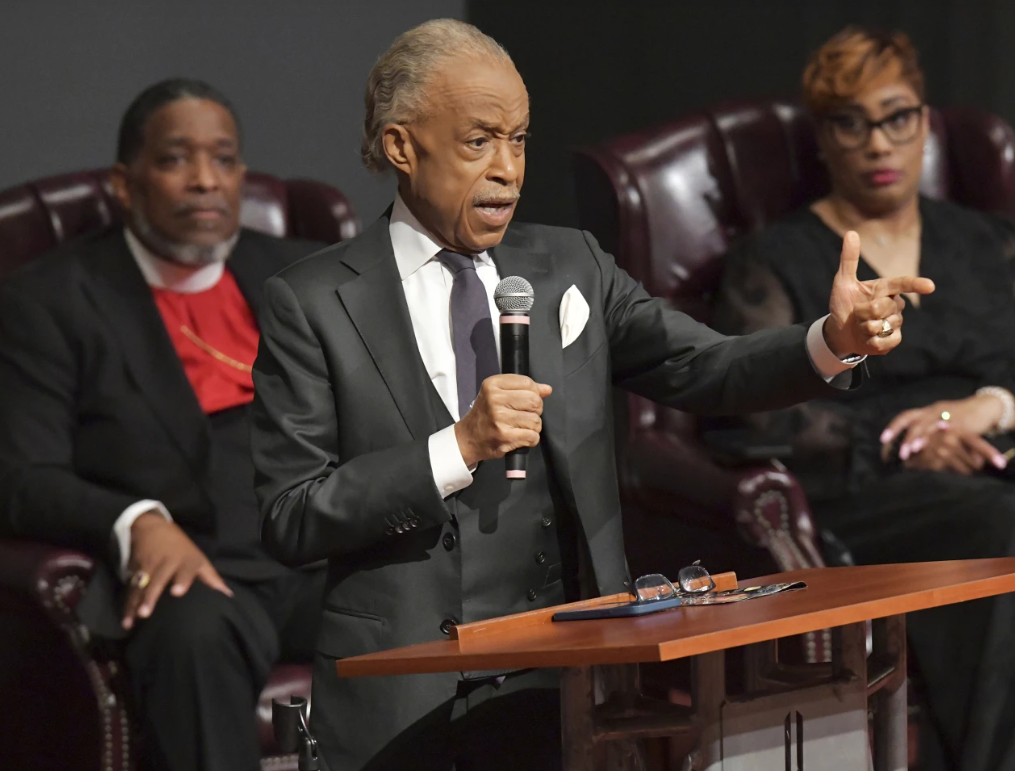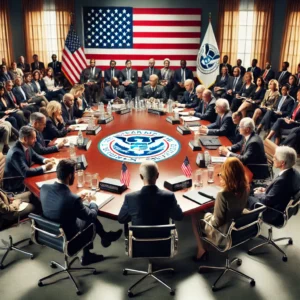As the Jacksonville shooting victims are remembered, advocates shine a spotlight on the disturbing rise in anti-Black hate crimes.
The recent heinous act of a white shooter targeting and fatally shooting Black individuals in Jacksonville, Florida, has once again ignited concerns about the alarming threat of hate violence and domestic terrorism against African Americans.
For decades, Black Americans have been the primary victims of hate crimes in the United States, a trend that persists to this day. However, the national spotlight on this issue becomes especially acute following racially motivated mass attacks, such as those witnessed at a supermarket in Buffalo, New York, and a historic Black church in Charleston, South Carolina, in recent years. (USnewsSphere.com)
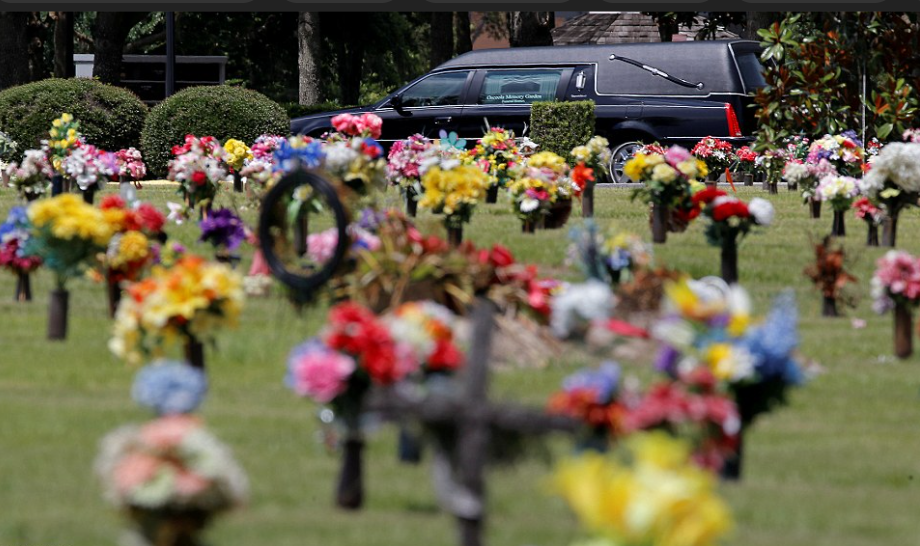
As grieving families in Jacksonville pay tribute to their loved ones who tragically lost their lives in a hail of bullets at a neighborhood discount store, activists across the nation are fervently advocating for more effective measures to combat the longstanding epidemic of hate violence against Black Americans.
Jacksonville shooting victims are remembered:
Rev. Al Sharpton passionately posed the question on Friday as he eulogized Angela Carr, one of the victims of the gunman who callously targeted and killed three Black individuals at a Dollar General store in Jacksonville on August 26th: “How many more lives must be lost before we, regardless of political affiliation, unite and declare that we must put an end to this?”
Funerals were solemnly held in Florida for two of the three victims on Friday, with the third scheduled for Saturday.
Rev. Al Sharpton drew attention to disturbing reports of neo-Nazi demonstrations in Orlando just days after the tragic Jacksonville shooting, underscoring the climate of hate that has taken root in Florida and throughout the United States.
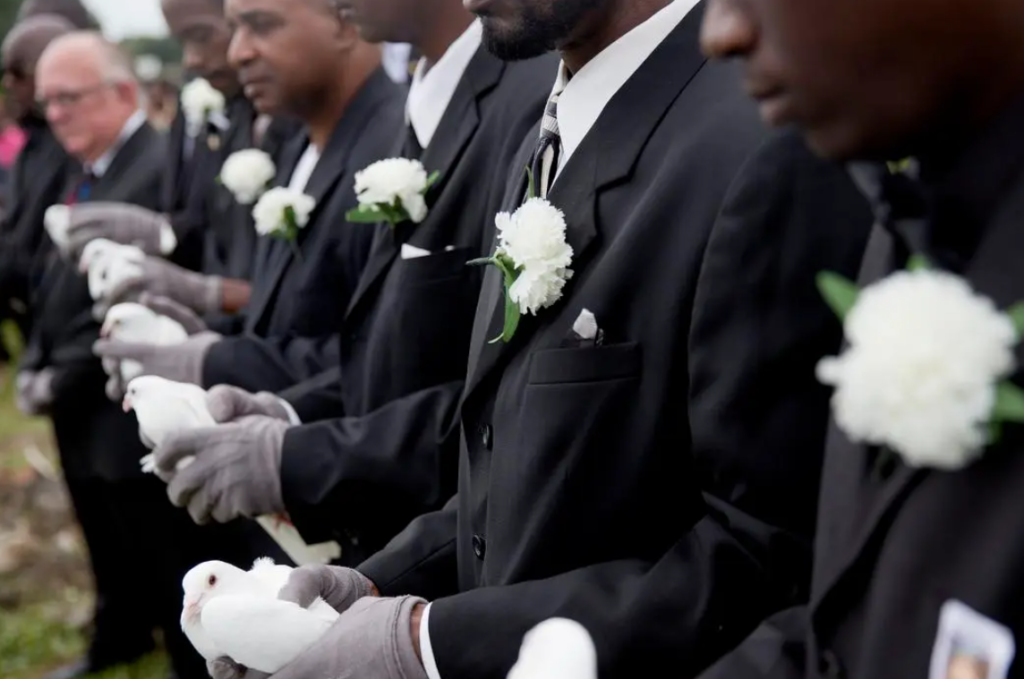
[CNN.com]
“Look at the data,” he urged.
Anti-Black hate crimes, which have disproportionately affected Black communities in the United States, reached their peak in 1996, comprising 42% of all hate crimes. However, these numbers followed a steady decline until 2020 when June of that year marked the worst month for anti-Black hate crimes since the FBI began tracking national records.
Brian Levin, Director of the Center for the Study of Hate & Extremism at California State University, cautioned that there are significant gaps in the FBI’s hate crime reports, which can create an inaccurate picture of hate crimes in various parts of the country. In 2021, states like Florida, along with Virginia, Mississippi, and Arkansas, had some of the lowest rates of reporting hate crimes to the FBI.

Levin pointed out that hate crimes often see an increase in election years and around significant events, leading to an uptick of nearly 500 to 700 more hate crimes during such periods. Political dynamics often act as catalysts for these spikes.
Additionally, Levin stressed that hate crimes are substantially underreported, even with the FBI’s revised reporting for 2021, which only captured 80% participation.
“Imagine if we had even more,” he emphasized.
In 1990, Congress passed legislation requiring the Justice Department to collect data on crimes motivated by race, religion, sexual orientation, and ethnicity, with the FBI responsible for data collection through the Uniform Crime Reporting Program. However, despite years of data collection, the problem of hate-motivated violence has escalated over the last decade. FBI data released in March revealed a significant increase in hate crimes in 2021, with 64.5% of victims targeted due to their race, ethnicity, or ancestry. Another 16% were targeted because of their sexual orientation, and 14% involved religious bias.
On Friday, leaders from more than 30 national civil rights organizations sent a letter to the White House, requesting a meeting with the Biden administration to address hate-motivated violence. If convened, this would be the first such gathering since the “United We Stand” summit with the President and administration officials in September 2022. The groups are seeking to discuss steps that federal agencies, beyond the Justice Department, can take to raise awareness about hate crimes and identify ways communities can respond to hate and violent white supremacy. They also requested a report detailing the administration’s progress since the previous summit.
“As we approach the one-year anniversary of this summit, the latest mass hate crime—in which three Black people were murdered at a store in Jacksonville, Florida—serves as a stark reminder of the repeated devastation that hate has on communities across the country,” the letter, signed by organizations such as The Leadership Conference on Civil and Human Rights, Asian Americans Advancing Justice, the NAACP Legal Defense Fund, Inc., and the Anti-Defamation League, states. “Our communities are facing an unprecedented threat from the hate-filled forces that seek to divide our nation,” they added.
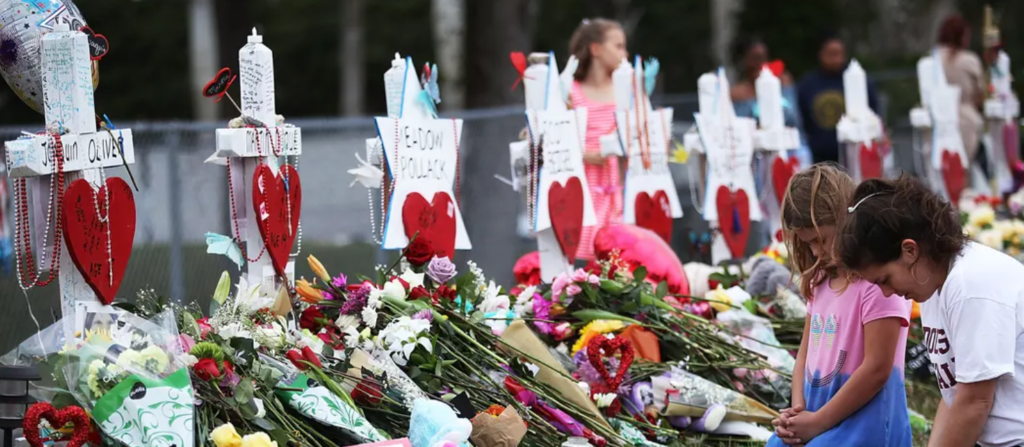
As of Friday, it remained unclear whether the White House had received or responded to the letter.
President Joe Biden commented on the Jacksonville shooting last week while he and First Lady Jill Biden were in Florida surveying the aftermath of Hurricane Idalia. He stated, “We’re still reeling from the shooting rampage, a terrorist attack driven by racial hatred and animus. Let me say this clearly: Hate will not prevail in America. Racism will not prevail in America. Domestic terrorism will not prevail in America.”
In 2021, President Biden signed the COVID-19 Hate Crimes Act to address the surge in anti-Asian hate crimes witnessed during the height of the coronavirus pandemic. Some advocates have expressed concerns about the absence of legislation specifically targeting the high rate of victimization among Black communities, while others highlight progress such as the enactment of the Emmett Till Anti-Lynching Act last year, which designates lynching as a federal hate crime.
While high-profile and deadly hate crimes like the Buffalo supermarket shooting that claimed 10 lives last year garner significant attention, many more incidents never make national news. The use of racial slurs on certain social media platforms spiked in the summer of 2020, coinciding with social justice protests following the murder of George Floyd by police in Minneapolis.
Damon Hewitt, President and Executive Director of the Lawyers’ Committee for Civil Rights Under Law, explained that his organization closely examines the toll of violent hate on Black people and other communities of color. Just before the pandemic, the organization launched the James Byrd Jr. Center to Stop Hate, aimed at supporting victims of hate incidents and dismantling white supremacist organizations and their structures.
The center is named in memory of James Byrd Jr., a Black man who was brutally murdered by white supremacists 25 years ago in Jasper, Texas, in one of the most gruesome hate crimes in U.S. history. (USnewsSphere)
Hewitt noted that Black individuals often face hate incidents while performing everyday tasks like jogging, grocery shopping, or attending college classes.
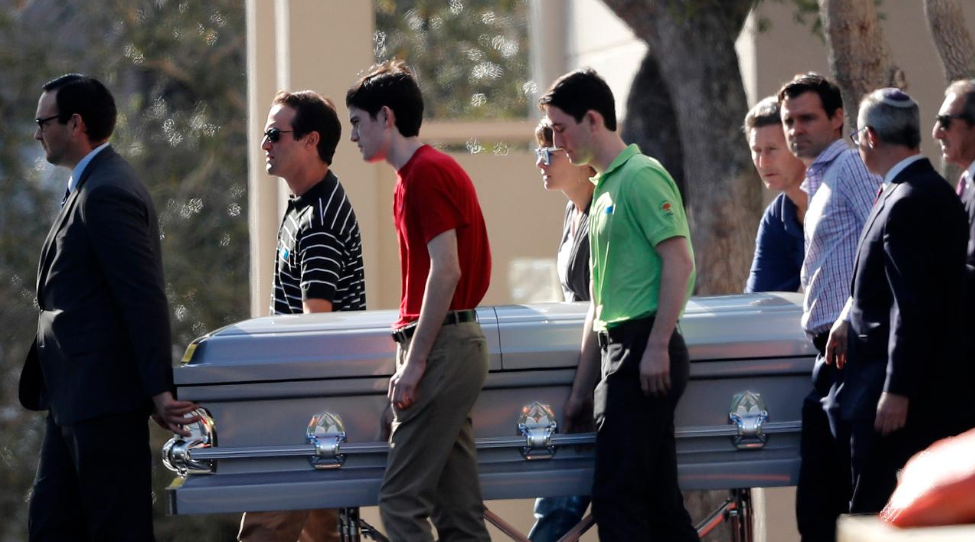
“We’re not safe anywhere,” Hewitt lamented. “So how can we have peace of mind? How can we pursue the American dream when America is always pursuing us?”
During a virtual press conference on Thursday, referencing the Jacksonville shootings, Rev. William Barber II, President of Repairers of the Breach, warned against divisive political rhetoric that he claimed had created an environment conducive to such attacks. He singled out public officials who “use the words of culture wars to attack Black history, to attack Black people,” specifically mentioning Florida Governor Ron DeSantis, who has overseen several laws and policies restricting the teaching of race in schools. Barber argued that there is a historical through line connecting divisive rhetoric, discriminatory policies, and violence against Black individuals in the United States over the last century. (USnewsSphere.com)


